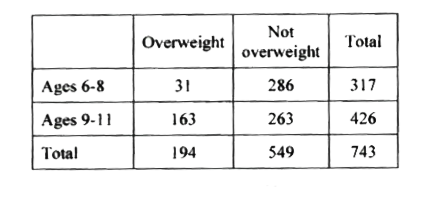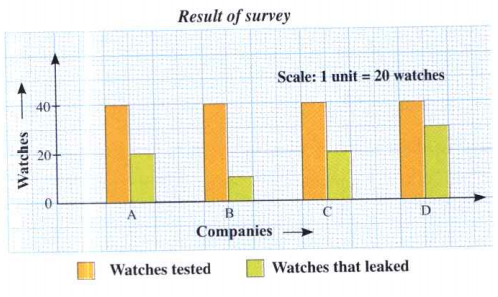An HIV infected individual will show a negative result for an antibody-antigen based test if the body has not produced antibodies. For such a situation, which of the following test could be used to confirm the presence of HIV?
MRI
PCR
ELISA
Widal test
The correct Answer is:B
To solve the question regarding which test could be used to confirm the presence of HIV in an individual who shows a negative result for an antibody-antigen based test, we can follow these steps:
1. Understanding the Context: The question states that an HIV-infected individual may show a negative result in an antibody-antigen based test if the body has not yet produced antibodies. This situation is common in the early stages of HIV infection, known as the "window period."
2. Evaluating the Options: The options provided are:
- A) MRI
- B) PCR
- C) ELISA
- D) VDRL test
3. Analyzing Each Option:
- A) MRI: This test is used for imaging internal organs and is not relevant for detecting HIV. Therefore, this option is incorrect.
- B) PCR (Polymerase Chain Reaction): This test detects the genetic material of the virus (HIV RNA or DNA) and can identify the presence of HIV even when antibodies are not yet produced. This makes it a suitable option for early detection.
- C) ELISA: This test is based on the detection of antibodies against HIV. Since the question specifies that antibodies have not been produced, this test would yield a negative result. Thus, this option is incorrect.
- D) VDRL test: This is a non-specific test for syphilis and does not detect HIV. Therefore, this option is also incorrect.
4. Conclusion: Based on the analysis, the only test that can confirm the presence of HIV in the absence of antibodies is the PCR test.
Final Answer:
B) PCR (Polymerase Chain Reaction)
---
- A) MRI
- B) PCR
- C) ELISA
- D) VDRL test
- A) MRI: This test is used for imaging internal organs and is not relevant for detecting HIV. Therefore, this option is incorrect.
- B) PCR (Polymerase Chain Reaction): This test detects the genetic material of the virus (HIV RNA or DNA) and can identify the presence of HIV even when antibodies are not yet produced. This makes it a suitable option for early detection.
- C) ELISA: This test is based on the detection of antibodies against HIV. Since the question specifies that antibodies have not been produced, this test would yield a negative result. Thus, this option is incorrect.
- D) VDRL test: This is a non-specific test for syphilis and does not detect HIV. Therefore, this option is also incorrect.
B) PCR (Polymerase Chain Reaction)
Similar Questions
Knowledge Check
A biologist is studying the effect of pollution on the reproduction of a specific plant. She uses the functinio n (p) to represent these effect, where p is the number of seeds germinated by the test group of the plant over a given period of time. Which of the following lists could represent a portion of the domain for the biologist's function ?
A{…−150,−100,−50,0,50,100,150…}B{−150,−100,−50,0,50,100,150}C{0,0.25,0.5,0.75,1,1.25,1.5…}D{0,20,40,60,80…}Read the following statements and select the correct ones.
(i) Vaccine is a preparation (or suspension ) of a dead/attenuated pathogen of a disease which on inoculation ( or injection ) into a healthy person, provides temporary/permanent active immunity by inducing antibodies formation.
(ii) Immunisation is the process by which the body produces antibodies against the vaccine preventable diseases through administration of specific vaccines.
(iii) The principle of immunisation or vaccination is based on the property of 'memory' of the immune system.
iv) If a person is infected with some deadly microbes to which quick immune response is required; in that case, we need to directly inject the performed antibodies or antitoxins e.g., in case of tetanus.A(i) and (ii)B(iii) and (iv)C(i), (ii) and (iii)D(i),(ii),(iii) and (iv)
A 2 year old child shows stunted growth and slow brain development. He has thin limbs and also shows wasting of muscles. There is great oedema and swelling present over his body parts. He has very less amount of fat present beneath his skin. Which of the following could be a reason for the development of this condition in him?
View SolutionWhich of the following is an auto-immune disorder in which the person produces antibodies that mimic the action of TSH, but are not regulated by the normal negative feedback controls?
View SolutionA healthy Croton plant bearing variegated leaves was kept in a dark cupboard to destarch it after which it was placed in sunlight for a few hours. One of the leaves was then plucked and an outline of the leaf marking the green and the non-green regions was drawn. The leaf was then tested for starch. Using the above information, answer the following questions
Name the chemical used for testing the presence of starch.
View Solution743 children from the United States, aged 6 through 11, were tested to see if they were overweight . The data are shown in the table below.

In 2014 the total population of children between 6 and 11 years old, inclusive , in the United States was about 74.3 million. If the test results are used to estimate information about children across the country, which of the following is the best estimate of the total number of children between 9 and 11 years old in the United States who were overweight in 2014 ?
View SolutionInfection by a pathogen can be detected by the presence of antigens or by detecting the antibody synthesized against the pathogen. The test/s based on this principle is/are
View SolutionThe following graph shows the result of a survey to test water resistant watches made by four different companies. Read the graph and answer the following question.
Which company has the worst watches?

View Solution
